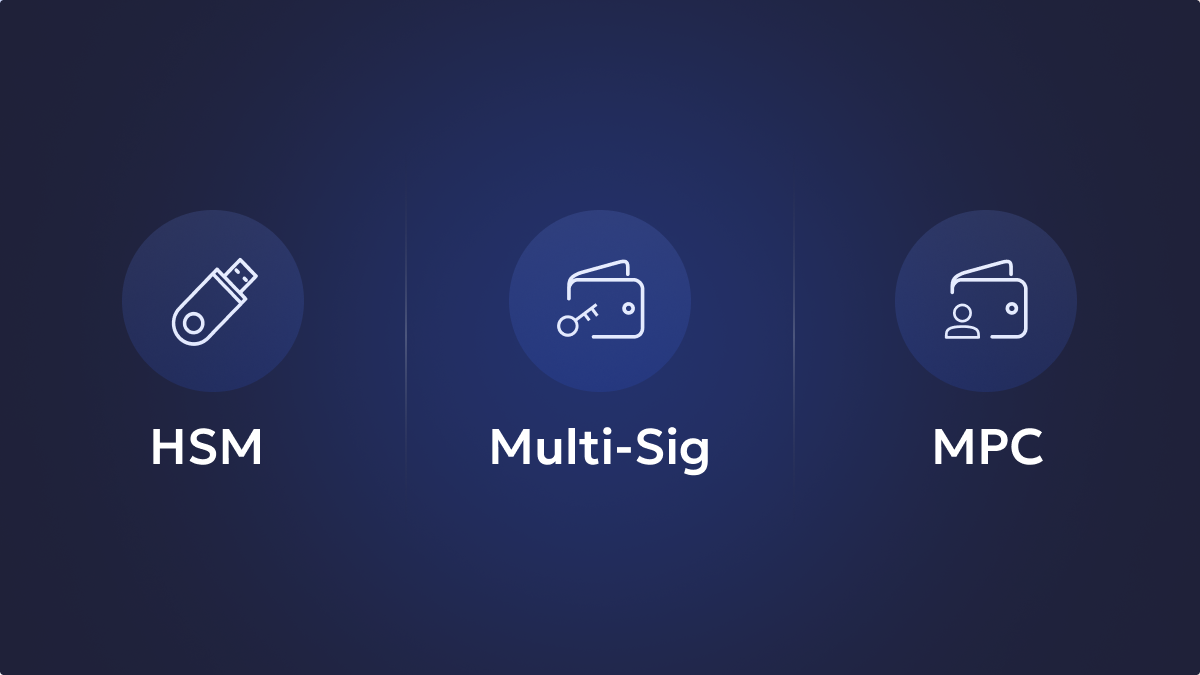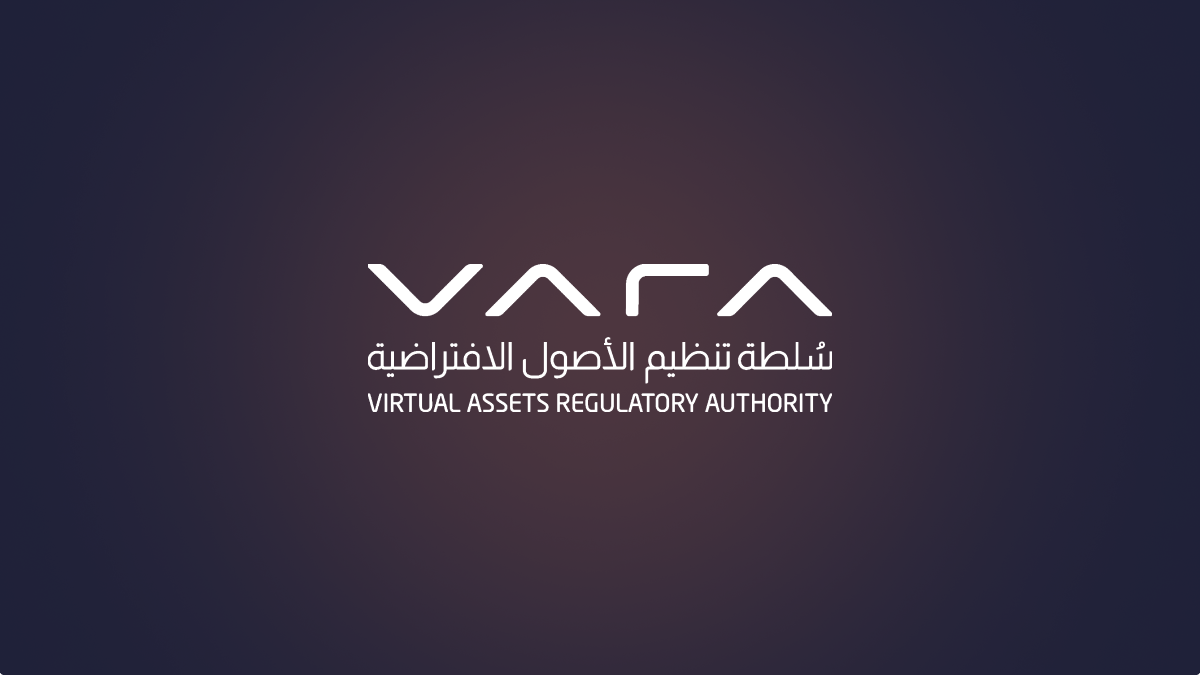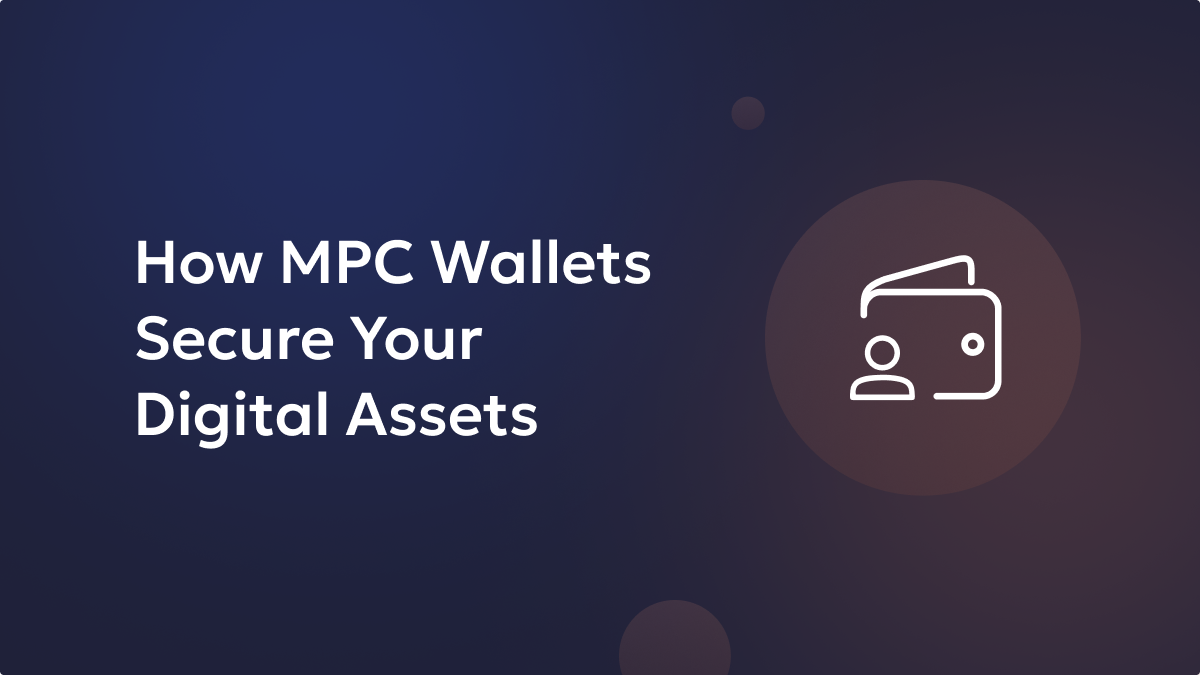The booming crypto market continues to ride the waves of enduring popularity, exemplified by its impressive valuation of $1.69 billion on the global scale in 2021. It’s evident: despite its inherent volatility, the crypto market continues its expansion. However, this volatility should not be taken lightly. Investors must vigilantly monitor it to safeguard their investments from potential erosion.
Moreover, within the crypto industry, there are numerous other risks looming over crypto investors worldwide. This is why it is important for every crypto enthusiast to be well-informed about these risks and stay equipped to protect their digital assets.
So, what’s the optimal approach to maximize the returns on your cryptocurrency investment? Beyond securing your funds with a crypto wallet such as multisignature wallet, it’s equally crucial to ensure the robust security of your wallet itself. The guidelines presented in this article encapsulate some of the best practices that should be diligently followed.
Unlock the potential of digital assets for your institution
Why are crypto wallets hard to handle or keep safe?
Certain cybercriminals and malefactors diligently search the internet for investors’ personal details, like phone numbers and email addresses. They exploit this information to persuade service providers to transfer the victim’s phone number to another device under their control. Once they’ve gained control of the phone number, they can reset the password and gain access to the victim’s cryptocurrency account, ultimately stealing their funds.
While there’s an inherent risk of falling victim to such tactics, you can take specific measures to bolster the security of your crypto wallet. Although there’s no foolproof solution, these seven tips and techniques can provide valuable guidance for newcomers in the world of blockchain cryptocurrency investing.
Steps to protect your crypto wallet
1)Use a Cold storage – Hardware Wallet
You don’t necessarily need to store your crypto 300 meters underground, but it’s advisable to maintain the majority of your holdings in a cold wallet or “cold” storage setup—meaning it’s kept offline and isolated. Only allocate an amount to exchanges and hot wallet or online wallets that you’re comfortable with potentially losing. You have a couple of options to achieve this level of security:
Secure and manage your digital assets with Liminal
Create an Air-Gapped Offline Setup: One method involves setting up an air-gapped computer by disconnecting the network card from your PC or laptop. You can use an operating system like TailsOS, designed for offline use. When generating your seed phrase, ensure that your hardware wallet is plugged into a secure network to minimize any exposure to online risks.
Invest in a crypto wallet hardware: Alternatively, you can purchase a hardware wallet designed specifically for secure cryptocurrency storage. These devices keep your keys offline, adding an extra layer of protection against cyber threats.
For added security measures: Be cautious about your digital footprint; consider covering the microphone and camera of your laptop to protect your privacy. Remove any electronic devices from the room where you’re working with sensitive web3 blockchain assets to minimize potential security risks.
2)Watch out for phishing scams
When interacting with blockchain and crypto wallet infrastructure, familiarize Yourself with potential threats. In today’s digital landscape, spoofed websites, which cunningly replicate legitimate ones, can appear virtually indistinguishable. It’s crucial to take extra precautions:
Verify URLs: Always double-check website URLs to confirm their authenticity. Better yet, safeguard yourself by bookmarking your cryptocurrency sites. For added security, note that MetaMask also helps by blacklisting MyEtherWallet clones.
Software Downloads: When obtaining software, especially for something as critical as cryptocurrency, verify its source and legitimacy. Even possessing a copy of Tails OS is futile if it’s been tainted with spyware.
Buy Directly from Manufacturers: When acquiring hardware crypto wallet India, play it safe by purchasing them directly from the official manufacturer. Beware of resellers, as one unfortunate individual lost their life savings when a seller on eBay tampered with a hardware wallet, extracting the recovery seed and repackaging the device.
Consider Wi-Fi Security: When interacting with crypto wallet infrastructure, think beyond just URLs. Always be mindful of potential Wi-Fi vulnerabilities. Someone might have compromised your Wi-Fi network, spoofed DNS settings, or redirected your traffic to malicious IP addresses.
3) Choose CEX platform with robust security and compliance check framework
As reported by TechRadar in 2021, victims of counterfeit crypto exchanges have collectively suffered the loss of millions of dollars. These fraudulent operations typically operate under advanced fee fraud schemes, enticing individuals to register on blockchain cryptocurrency exchange platforms with the promise of substantial cryptocurrency rewards.
When venturing into cryptocurrency trading and opting for different types of crypto wallets, it is of paramount importance to select a regulated broker or exchange. The crypto landscape is filled with scams, and safeguarding yourself against them is imperative. Regulated brokers and exchanges are bound by specific rules and regulations, making them considerably less prone to engaging in fraudulent activities. Additionally, they often offer enhanced safeguards for investors, including insurance coverage against theft or losses.
Choosing a regulated broker or exchange or multisignature wallet service provider stands as one of the most effective strategies for securing your assets when dealing with cryptocurrencies. Ensure thorough research before making your selection to guarantee the safety of your funds.
4)If using a decentralised wallet secure your seed phrase offline
A wallet service such as MetaMask will create a sequence of 12 to 24 randomly generated words known as a “seed phrase.” It’s crucial to input this seed phrase in precisely the same order as when you initially signed up.
Regrettably, there’s no legitimate “forgot your password” option available with the best crypto wallet in India. As a result, if you happen to misplace your seed phrase, there’s no recourse—losing access to your wallet becomes unavoidable. To prevent this, store your seed phrase securely offline. You can achieve this by simply writing it down on a piece of paper and keeping it in a safe location, just like you store your valuable belongings.
5)Do not link your wallets with random decentralized applications
When something appears too good to be true, it often is. If you’re seeking information about an address or wallet before sending your hard-earned cryptocurrency, numerous valuable tools are available: Bitcoinwhoswho.com serves as an excellent resource for conducting scam investigations. This platform not only offers insights into the current balance and transaction count but also reveals whether the address has been associated with any websites and provides details about the IP address of the last transaction.
Oxt.me is a valuable website for tracking Bitcoin transactions on the blockchain. It offers visualizations of transaction histories and volumes. A potential warning sign to watch for is identical graphs representing inbound and outbound transactions, suggesting that the ethereum/ polygon multisig wallet’s owner rapidly moves funds out right after receiving them.
Beware of phishing attacks. Phishing scams in the world of DeFi often revolve around deceitful tactics that persuade users to link their crypto-wallets, often through WalletConnect, to deceptive decentralized applications (DApps). Once this connection is established, scammers can exploit it to infiltrate the user’s multisig wallet and execute unauthorized transactions.
6) Keep your software pakages updated
Frequently updating your cryptocurrency software and hardware wallets is essential to safeguard devices for vulnerabilities. Security vulnerabilities are prime targets for hackers seeking to compromise your crypto assets. Thus, maintaining up-to-date software is paramount for safeguarding your digital investments.
7)If holding funds in large volume use a multi-sig wallet
Picture the scenario: losing your entire wealth because it was all concentrated in a single location. It’s a nightmarish thought!
Here’s a fundamental rule: avoid putting all your assets in one place. By doing so, if one location is compromised, it doesn’t spell disaster for your entire wealth. This principle holds true for your cryptocurrencies as well. Consider dispersing and securely storing them across multiple wallets such as crypto wallet hardware to mitigate the potential consequences of any loss. As a general practice, it’s wise to reserve only a modest portion online for trading, while safeguarding the majority of your savings in secure cold wallet storage.
Acquiring a multisig wallet represents a substantial step toward supporting the security of your virtual currency, especially when dealing with significant holdings. This functionality, supported by select crypto wallet providers, acts as a safeguard against unauthorized access by requiring digital signatures from designated individuals.
With a multisig wallet in place, hackers often try to illicitly breach your wallet and jeopardize your cryptocurrency assets without the approval of the specified parties. It is essential to verify whether your crypto wallet already incorporates this protective feature if you haven’t done so already.
How to eliminate the risk of asset theft or hacking on your wallet?
Offline cryptocurrency storage or crypto wallet infrastructure is commonly acknowledged as the most secure choice, a preference shared by both individuals and exchange platforms for safeguarding their digital assets.
When you opt to store your digital assets with an exchange, you essentially entrust the management and security of those assets to that particular entity.
Learnings
Cryptocurrency, while offering a secure virtual payment method, exists within a highly volatile market and carries substantial risks when it comes to storing and trading digital assets. The potential consequences of these risks can be the irretrievable loss of your assets.
So, what steps can you take to reduce these risks and ensure the safety of your funds? It starts with proactive engagement. Cybersecurity is an individual responsibility, and the more you educate yourself about essential security measures, the better prepared you become to fend off malicious efforts by hackers.
FAQs
Where is the least safe place to keep your cryptocurrency?
Cryptocurrency, being a digital asset, demands secure storage to prevent potential theft or loss. Multiple storage options exist, but the safety levels can vary significantly. It’s essential to note that the least secure location for safeguarding your cryptocurrency is within an exchange.
What is hot crypto storage?
Hot and cold wallets represent the predominant methods for storing and transacting cryptocurrencies and tokens. Hot wallets are web-connected and operate online, whereas cold wallets are offline and typically take the form of physical devices like USB sticks.
How do you store large amounts of crypto?
A cold storage wallet is a types of crypto wallet that remains disconnected from the internet. These crypto wallet infrastructures offer robust protection against hackers, making them the preferred choice for securing substantial cryptocurrency holdings. Popular options among users include Trezor and Ledger.
How is crypto safer than banks?
Cryptocurrencies are inherently resilient to cyberattacks due to their decentralized nature. In a decentralized system, there is no single point of failure, preventing hackers from gaining access to all the funds simultaneously. This characteristic enhances their safety profile, making cryptocurrencies a potentially more secure investment compared to traditional banking systems.
Can you store crypto offline?
Yes, offline storage choices encompass cold storage wallets and paper wallets. Paper wallets have become less commonly used in recent times. It is advisable to invest in a reliable and secure cold wallet as the preferred method for keeping your cryptocurrency offline.
How is cryptocurrency kept safe?
You have the flexibility to store substantial amounts of cryptocurrencies using various storage methods, but the most secure choice is cold wallets. Cold wallets provide the highest level of security and are capable of securely storing any quantity of cryptocurrencies for extended periods.






